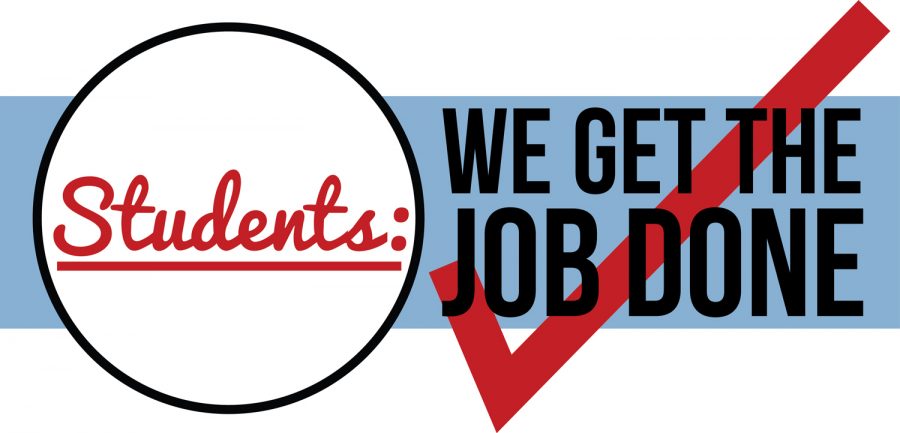Students: We get the job done
September 15, 2016
The University offers jobs on campus for students who want to pursue something they feel passionate about while making a few extra bucks. Some campus jobs, like the Student Calling Program, employ many students while others employ just a few. It’s difficult to figure out how to get a job and to know which responsibilities they come with, so we asked some students and employers to elaborate on the employment process and their job descriptions.
How to Get a Job
The process of getting a job on campus can be confusing, because each department has a different employment process. For the Student Calling Program, which currently employs over 80 University students, one must fill out an online application which gets assessed by the fundraising directors.
“For a potential student caller, we are really looking for someone with a great personality and great charisma; student callers have to conduct themselves professionally and have a sincere love for [the University],” Outreach Specialist for the Annual Fund Ellice Moore said.
Sophie Heinberg ’17, a campus tour guide, describes that to get her job, she had to apply with the Office of Admissions and interview with the tour guide coordinators. Maria Prothero ’18, a receptionist for the University Switchboard, found the job opportunity on the Bridge, applied, and interviewed with administrators.
Time Commitment
Having a job on campus comes with the added pressure of another obligation and time commitment.
“We definitely need people to be dependable, as we have goals set for our program that must be met in order to further the Annual Fund cause, so our students have to be here when they say they will be,” Moore said.
However, some campus jobs provide a relaxed environment so students have an easy time managing it.
“I am especially lucky with my job because I can do homework if the phone isn’t busy or if no one is at the window,” Prothero said, who works five to six days a week.
Haley Calkins ’17 works as a paid finance and marketing intern for the Career Development Center (CDC), and she rarely has issues balancing schoolwork and interning.
“I usually work three to four days each week—six of my 10 hours are spread between Tuesdays and Thursdays. I have flexibility in scheduling my other four hours,” Calkins said.
Heinberg has no difficulty balancing a job; most tour guides work two days a week, but as a senior, she only works one day a week.
Rewards
Students enjoy rewards from holding a job on campus that go beyond earning a salary. Students often devote their time to jobs in which they have a vested interest.
“The most rewarding part of my job has been sharing my personal experiences at [the University] with prospective families and painting a picture for them of what it is like to be a [University] student,” Heinberg said.
“[I like] when I can manage to find answers to hard questions people may have or when prospective students, parents, or college counselors ask me about my personal experience as a student and I’m able to shed light on life at Bucknell,” Prothero said.
“The most rewarding part of the job (and why I applied for it) is working with students to better manage and effectively navigate the investment banking recruitment process,” Calkins said.
Moore stresses the importance of students’ roles in fundraising, describing how a lot of the money raised goes toward financial aid.
“A lot of students would not be here were it not for the Annual Fund, so any small part they can play in showing their gratefulness is wonderful to see,” Moore said.






















